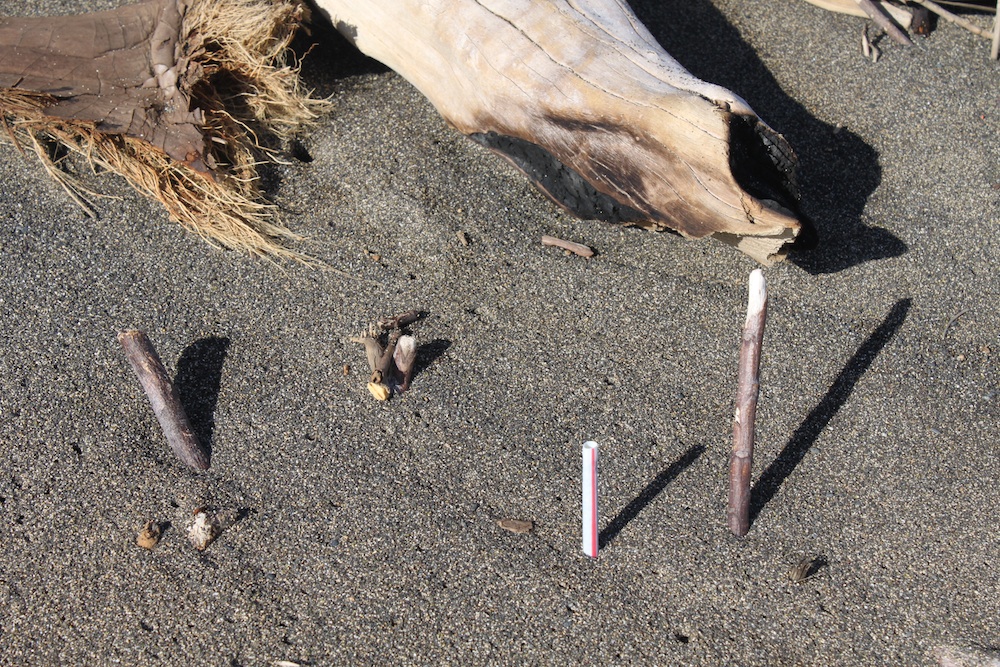Marine Debris Pollution: Five Lessons Learned This Year (Op-Ed)


Dylan Gasperik is a program assistant for communications at the Natural Resources Defense Council.This Op-Ed was adapted from a post to the NRDC blog Switchboard. Gasperikcontributed this article to LiveScience's Expert Voices: Op-Ed & Insights.
Give me a piece of what you've got I'll make it new with much less thought it's symbolic and full of trash Lofty endearments whispered under your breath
Five lessons remembered from yesterday Easing my mind and seizing each new day Beyond and back I'm still the same Kicked over some old trash but I still waste
-Swingin' Utters, from "Five Lessons Learned"
Sept. 21 was California Coastal Cleanup Day (CCD), and so I joined a small group from my outrigger canoe club to pick up around our home beach in Marina Del Rey before going out for a paddle.
Cleaning up the beach with friends is a great way to spend a little time paying attention to where our waste ends up. This is not a new lesson, but important to realize the importance of events like CCD. I have noticed that my own awareness of the things I use and where I dispose of them is heightened after I have spent time collecting waste from the beach.
Last year on CCD, 65,544 volunteers prevented 769,607 pounds of debris from reaching the sea and that's no small number! But next week, there will be more trash on the beaches — this problem isn't going to be solved in a day.
Get the world’s most fascinating discoveries delivered straight to your inbox.
In about an hour, I managed to fill a five-gallon bucket with a varied assortment of butts, bottles, wrappers and bags. Inspired by that unholy potpourri, here are some assorted thoughts on marine debris and plastics, five important lessons I learned this year.
Political action can make a difference on a large scale
This year, Los Angeles became the largest major city to ban plastic bags. This single action is a huge step towards changing America's throwaway culture of single-use plastics that provide momentary convenience but cause lifetimes of destruction. I should expect other major cities to follow suit.
Personal, political and nonprofit pressure can influence corporate behavior
In September, McDonald's announced that their hot beverages will no longer be served in Polystyrene cups, after a shareholder resolution introduced by As You Sow received popular support.
The throwaway culture is backed by industry money, and those industries will fight to the death for the status quo
This year, a bill was introduced in the California legislature to hold businesses responsible for the waste that they produce. This kind of common sense law is as universal as one of my mother's favorite phrases that I learned as a young boy, "Pick up after yourself, I'm not your maid!" However, the bill died on the floor due to opposition from the industry lobby. Producer responsibility will become law in California, it's just a matter of clearing political obstacles and bringing the issue to the attention of the ocean-loving public. As with many other environmental issues, California has the chance to lead the way with progressive environmental law that the rest of the country can follow.
Personal action is how society changes the throwaway culture for good
People I know make a dent in marine pollution every day by asking for their drink with "No straw, please," by taking a couple pieces of trash off the beach with them after a surf and by remembering to bring along their reusable bags and water bottles. When they remember, it helps me remember, and simple actions are multiplied.
Meanwhile, cleaning up trash headed for the ocean is costing California taxpayers $500 million a year
The marine trash issue is local, regional and global. Marine debris pollution is an issue in beautiful Bali, in Midway Island in the middle of the Pacific and everywhere on the 71 percent of the planet covered by water. Animals and ecosystems are dying, and beautiful places are being destroyed. Humans are capable of such beauty and creativity, but certain parts of our culture are ugly and harmful. Let's toss that.
This Op-Ed was adapted from "Marine Debris Pollution: Five Lessons Learned This Year" on the NRDC blog Switchboard. The views expressed are those of the author and do not necessarily reflect the views of the publisher. This version of the article was originally published on LiveScience.



